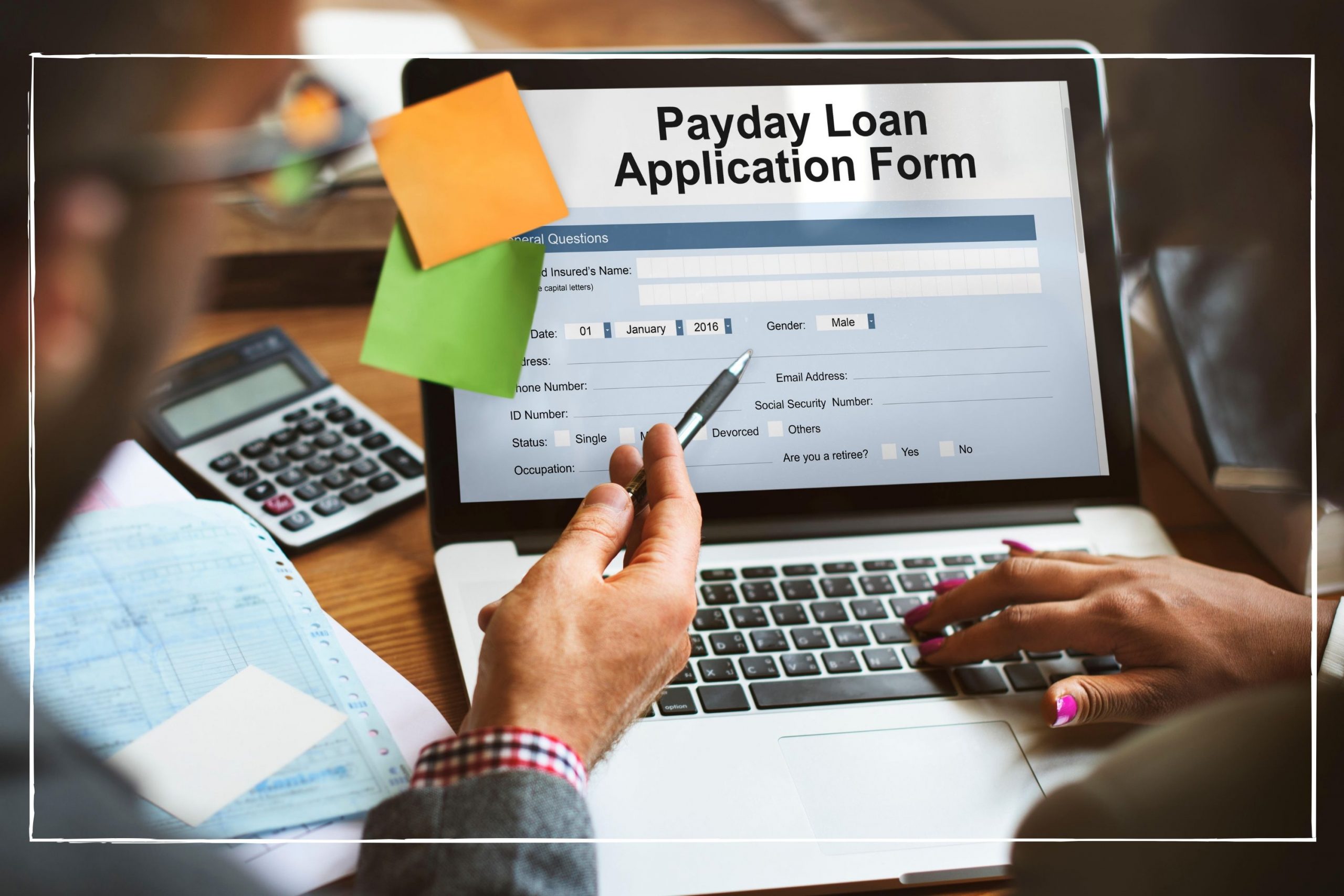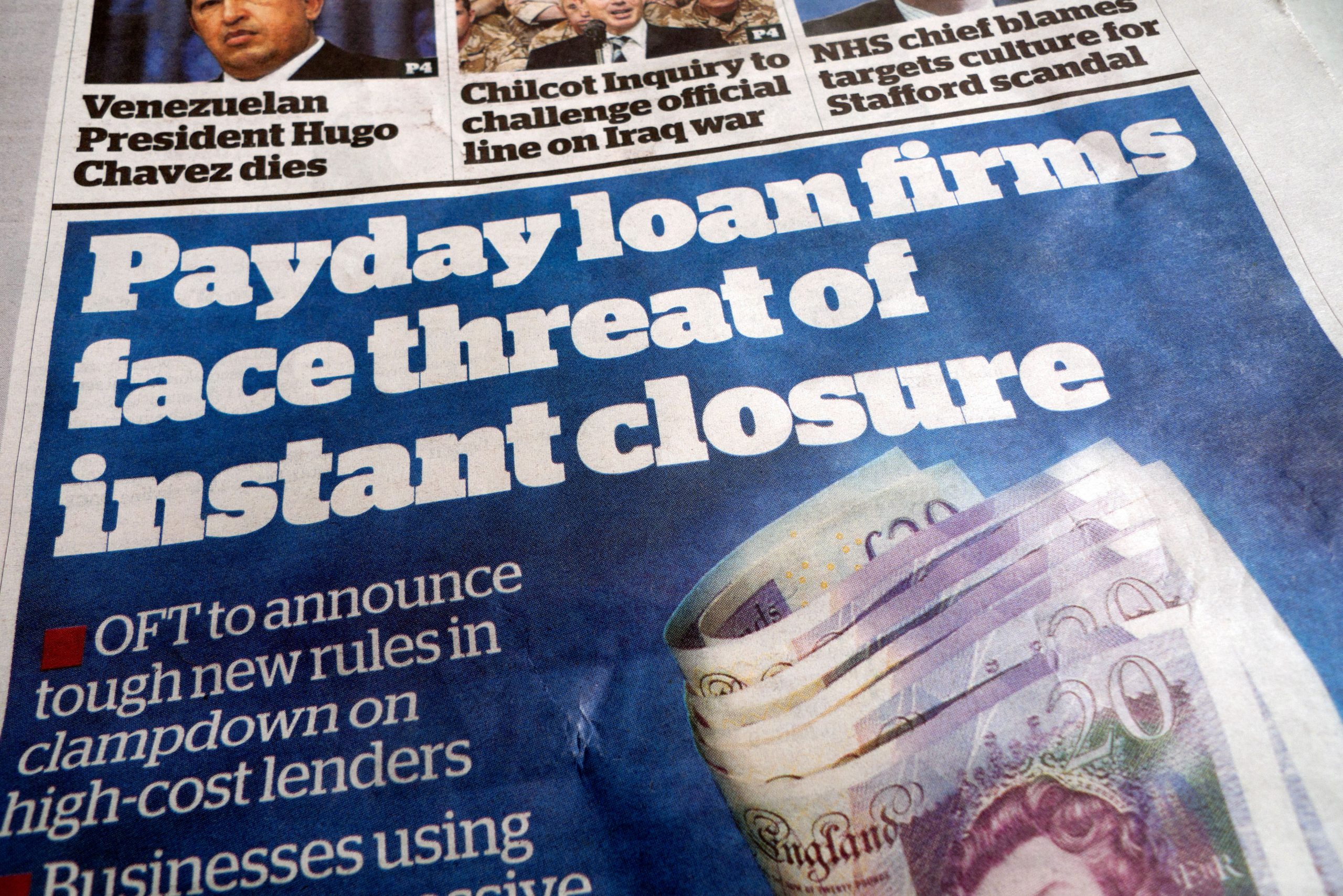What are payday loans? 7 expert reasons to avoid them
A payday loan might seem like an easy fix for your money worries, but high interest rates could plunge you into a debt spiral.

With the cost of living increasing, you may be wondering what are paydays loans and whether they could be a solution to ease the squeeze on your household finances.
With the price of everything going up these days, many of us are looking for ways to save money on food and are worried about how much our energy bills will cost. While a payday loan might seem like an easy solution, it could make your money worries worse.
Myron Jobson, senior personal finance analyst at Interactive Investor explains: “It’s easy to see why these loans may be tempting at first glance, especially when they’re so fast and convenient,” he says. “But while taking out a payday loan to paper over holes in your finances may seem like a quick fix, it can all-too-often get people trapped into a cycle of debt.”
What are payday loans?
Payday loans are short-term loans for small amounts of money to keep you going until you’re next paid. You can typically borrow between £100 and £1,000. The idea is that you repay the money within a month. Some lenders will often give you three to six months to repay the loan.
Sarah Coles, senior personal finance analyst at Hargreaves Lansdown says the catch is that they are notoriously expensive. “The interest rate is punishing and if you miss payments the costs will mount alarmingly.”
According to the Financial Conduct Authority (FCA), the average annual percentage rate (APR) on a payday loan is 1,250%. However, for loans that are intended to be repaid over months rather than years, an APR is pretty meaningless.
For a better indication of cost, consider the cost caps which restrict the amount payday lenders can charge. These were introduced in 2015 by the FCA, following a campaign by Labour MP and campaigner against payday loans Stella Creasy:
Parenting advice, hot topics, best buys and family finance tips delivered straight to your inbox.
- Lenders can’t charge you more than 0.8% interest a day – that’s 80p for every £100 borrowed. The maximum charge for a £100 loan over 30 days is, therefore, £24.
- You cannot be charged more than £15 for missing a payment.
- You will never be asked to repay more than double the amount borrowed, including charges.
These measures have gone a long way to limiting the potential for payday loans to spiral out of control. But this remains a very expensive way to borrow.
Payday loan providers are also no stranger to controversy.
Labour MP Stella Creasy, launched a campaign against payday loans from 2012. She urged the government to cap the costs, as some companies were offering loans with interest rates of 4,000%. In 2014, the FCA investigated Wonga and placed a skilled person at the company to help overhaul its practices. But by 2018, Wonga had gone bust following a deluge of compensation claims from customers who were sold high-cost loans. QuickQuid's parent company was also placed into administration in 2019 after it refused to pay compensation claims.

Do payday loans hurt your credit score?
Taking out a payday loan could potentially hurt your credit score. As a form of credit, payday loans will show up on your credit record. Your credit record gives potential lenders an overview of your borrowing history. It tells them how much debt you have and whether you’ve ever missed or made late payments. Even if you don’t miss payments, payday loans may still reduce your credit score.
John Webb, senior consumer affairs executive at Experian explains: “Taking many short-term loans can reduce your credit score for up to 12 months. Your credit score is also calculated based on the average age of your accounts, so having lots of new accounts can impact your score.”
Theoretically, by repaying a payday loan promptly, you could boost your credit score over time. However, because payday loans suggest you’re struggling with money, it’s not something lenders like to see on a credit record.
Experian's John Webb adds: “Some lenders are nervous about these types of loans. If you want to apply for a mortgage in the future, it’s sensible to avoid short-term loans for at least one year.”
Are payday loans safe?
Payday loans are high-risk. Even with regulated lenders, while there will be a degree of consumer protection, payday loans are risky. Interest rates are sky-high, there are penalties for missing payments and, even with the FCA price caps, you could still end up paying double what you borrowed. That’s bad news if you’re already struggling to make ends meet and makes it all too easy for borrowing to become habitual.
According to the Competition and Markets Authority, 75% of payday loan borrowers take out more than one loan a year, with the average borrower taking out six loans a year.
Never borrow from a lender not regulated by the FCA - you are effectively dealing with a loan shark.
7 reasons to avoid payday loans
Payday loans are legal and, provided the lender is regulated by the FCA, offer some consumer protection. If your boiler has broken down, they might feel like a lifeline. However, they are still high risk.
Here are 7 reasons to avoid payday loans:
- They’re expensive – borrowing £100 for 30 days is likely to cost £24
- Miss a repayment and you’ll be charged up to £15
- It’s easy for debts to spiral. If you need to borrow this month, how certain are you that you’ll be able to repay the loan plus interest next month?
- They could harm your ability to borrow further down the line. Missed payments will reduce your credit score while many lenders will frown upon any evidence of payday loans on your credit record.
- You can get a loan in minutes – which makes it all too easy to borrow without giving it proper thought. That often means you don’t end up tackling the root of your financial problems or investigating alternatives.
- You may be able to find cheaper, or even free, ways to borrow.
- A payday lender might not have your back. 25% of debt charity Step Change’s clients said they didn’t think their payday lender took reasonable steps to ensure they could repay their loan. Where clients told their payday lender they were struggling with repayments, less than 50% were told about free debt advice.
What’s a better alternative to a payday loan?
Choosing an alternative to a payday loan depends on your circumstances. If you have a good credit score, using a credit card might be an option. Borrowing informally from parents or other family members may also be a solution. Another option might be a loan from a credit union. These are financial co-operatives that offer low-cost and non-profit savings and loans. Find out if there’s a credit union near you, or that serves the industry you work in.
Personal finance analyst Sarah Coles says: “If you need money for a specific purchase to tide you over until payday, then a normal credit card will let you borrow interest-free until the payment date. So long as you pay it off in full at that stage, it won’t cost you anything. If you need to borrow for longer, and you qualify for a credit card with 0% on purchases for a period, then you can borrow interest-free. Just make sure you work out exactly how you'll repay the money before interest is charged.”
As a rule, it’s best not to borrow unless you really have to. Instead, look to find ways to trim your spending wherever possible. It’s tricky to save on petrol and heating bills at the moment, but you might be able to head to a cheaper supermarket or cut back on any remaining luxuries. Writing a monthly budget showing all your income and essential outgoings is a great start.
What should I do if I have a payday loan?
If you already have a payday loan, the best thing you can do is to repay it as soon as possible - without taking on another short-term loan to do so. The longer you take to repay the loan, the more it will cost you. If you miss payments you’ll be stung with penalties too.
In many cases, putting your finances under the microscope and writing a budget can be enough for you to regain control of your money. However, if that’s not enough, it’s worth contacting a charity such as Step Change or National Debtline for some free debt advice. The sooner you take action, the easier it will be to get back on track.
Video of the Week
As well as being a mum, Rachel Lacey is a freelance journalist with more than 20 years' experience writing about all areas of personal finance and retirement planning. After 17 years at Moneywise magazine as both writer and editor, Rachel now writes for a variety of websites and newspapers as well as corporate clients. She is passionate about financial education and simplifying money matters for all.